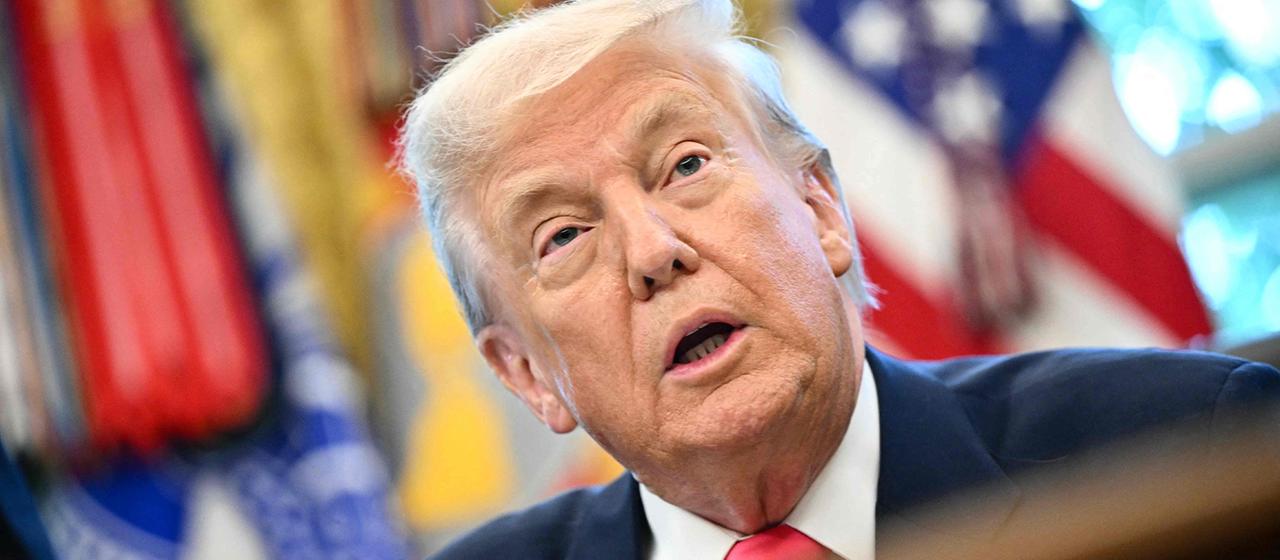
US President Trump is dampening expectations for the meeting in Alaska. Nevertheless, the US could offer Russian President Putin a deal. Will it at least be the beginning of the end of the war?
Just last Tuesday, Donald Trump's spokeswoman tried to dampen expectations for the talks between the US president and Russian President Vladimir Putin: This was more of a listening exercise for Trump, said spokeswoman Karoline Leavitt. The president wanted to better understand how the war against Ukraine could hopefully end. Exploring ways toward a ceasefire was the top priority of the talks.
But expectations have since grown. The US President himself describes the meeting with Putin as a major meeting. He says it will be equally important for Russia and the US, especially because, if successful, many lives could be saved.
Deal with the USA according to media report
The British Daily Telegraph reports that Trump may offer Putin a deal: According to the report, White House staff are working on an agreement that would give Russia access to rare earths in Alaska.
In addition, some sanctions against the Russian aviation industry are to be lifted. For months, Russia has been trying to purchase Boeing aircraft using billions of US dollars from frozen state assets. This could be possible in the event of a ceasefire and would, in turn, help the struggling US company – although Trump has so far only given evasive answers to questions about such a deal.
Bilateral talks between Putin and Zelensky?
Immediately after the bilateral talks with Putin, Trump plans to brief Ukrainian President Volodymyr Zelensky, followed by the European heads of government. And then, the US President said, things will hopefully continue quickly – with a one-on-one meeting between Putin and Zelensky. He, Trump, would also be happy to participate – if Putin and Zelensky wanted him to be there.
Trump's confidence that Putin will truly stick to his agreements isn't exactly overwhelming. Too many times, he says, he's spoken with the Russian president and then fired missiles at a nursing home or apartment building. Should that happen again, Trump threatens harsh consequences. US Treasury Secretary Scott Bessent has already announced sanctions if the talks in Alaska are unsuccessful.
Punitive tariffs against Russian partner countries
In principle, punitive tariffs were to be imposed last Friday on countries that trade with Russia – if there is no ceasefire by then. India will be the first country to be subject to the punitive tariff, starting at the end of August. The country buys large quantities of oil from Russia. If no agreement is reached, other countries could follow, according to Bessent. China, for example, is being discussed.
It's well known that Trump wants to portray himself as a"dealmaker" once again in Alaska. But his interest in peace also has an economic basis. Vice President J.D. Vance made this clear again: The US wants a peaceful settlement and an end to the killing.
No more military aid for Ukraine
But they also don't want to spend any more taxpayer money on the war taking place in Europe's backyard, Vance explained in an interview on Fox News. And he told the Ukrainians that they, too, would be expected to do something for a ceasefire.
They are now trying to find an agreement that both sides can reasonably live with, one that will definitely stop the killing. But this will likely result in a solution that both Russians and Ukrainians will be somewhat unhappy with.
Samuel Charap, a Russia expert at the nonpartisan think tank Rand, is nevertheless cautiously optimistic. The talks in Alaska will hardly be the end, but perhaps the beginning of the end of a war that has already lasted over three years.

